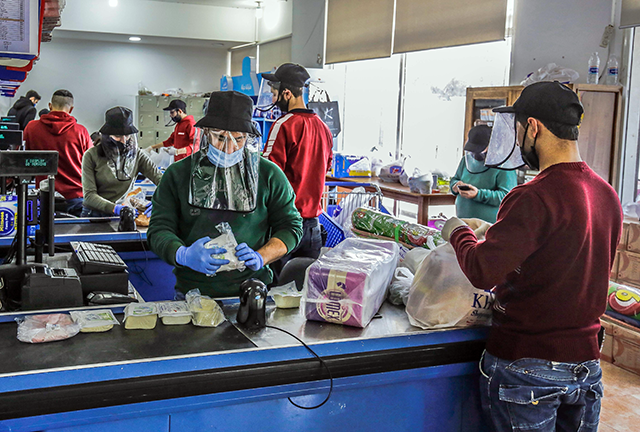BEIRUT — Lebanon's finance ministry on Monday said it will "discontinue" payments on all dollar-denominated Eurobonds due in the next 15 years to safeguard dwindling foreign currency reserves.
"The government has decided to discontinue payments on all of its outstanding US$-denominated Eurobonds," said an English-language statement posted on the finance ministry's website.
Lebanon, hit by a grinding dollar liquidity crunch amid its worst economic recession in decades, had already set the stage for a default on its outstanding $30 billion Eurobonds.
It has suspended payment of a $1.2 billion Eurobond just before a March 9 deadline -- its first ever such missed payment -- and said it would seek restructuring negotiations with creditors over the rest of its debt pile.
On Monday, the finance ministry said it intended to enter into "good faith discussions with its creditors as early" as possible.
Lazard Freres, a firm serving as a financial advisor to the Lebanese government, "has been instructed to initiate arrangements as appropriate under the current circumstances to facilitate such good faith discussions," the statement said.
The finance ministry said it planned to hold an investor presentation on 27 March, but did not provide more details.
The government must now reach a decision on whether to ask for a bailout from the International Monetary Fund, which has so far only provided Lebanon with technical assistance to deal with its financial crisis.
Banking experts have argued in favour of an IMF rescue plan, saying it would provide the kind of assurances creditors are looking for in restructuring negotiations.
But some officials are concerned that such assistance would involve an austerity package, which may provide new fuel to a street protest movement that has shaken Lebanon since October.
Lebanon's Hizbollah movement, which has been the main opponent of an IMF bailout, said this month it could accept help from the world body under "reasonable conditions".
One of the most indebted countries in the world, the small Mediterranean country had never defaulted before this month.
But with foreign reserves plummeting amid a slowdown in foreign currency injections, officials have said they have no other choice but to restructure the country's debt.
Earlier this month, Finance Minister Ghazi Wazni said the country's foreign reserves stood at a little more than $20 billion.
